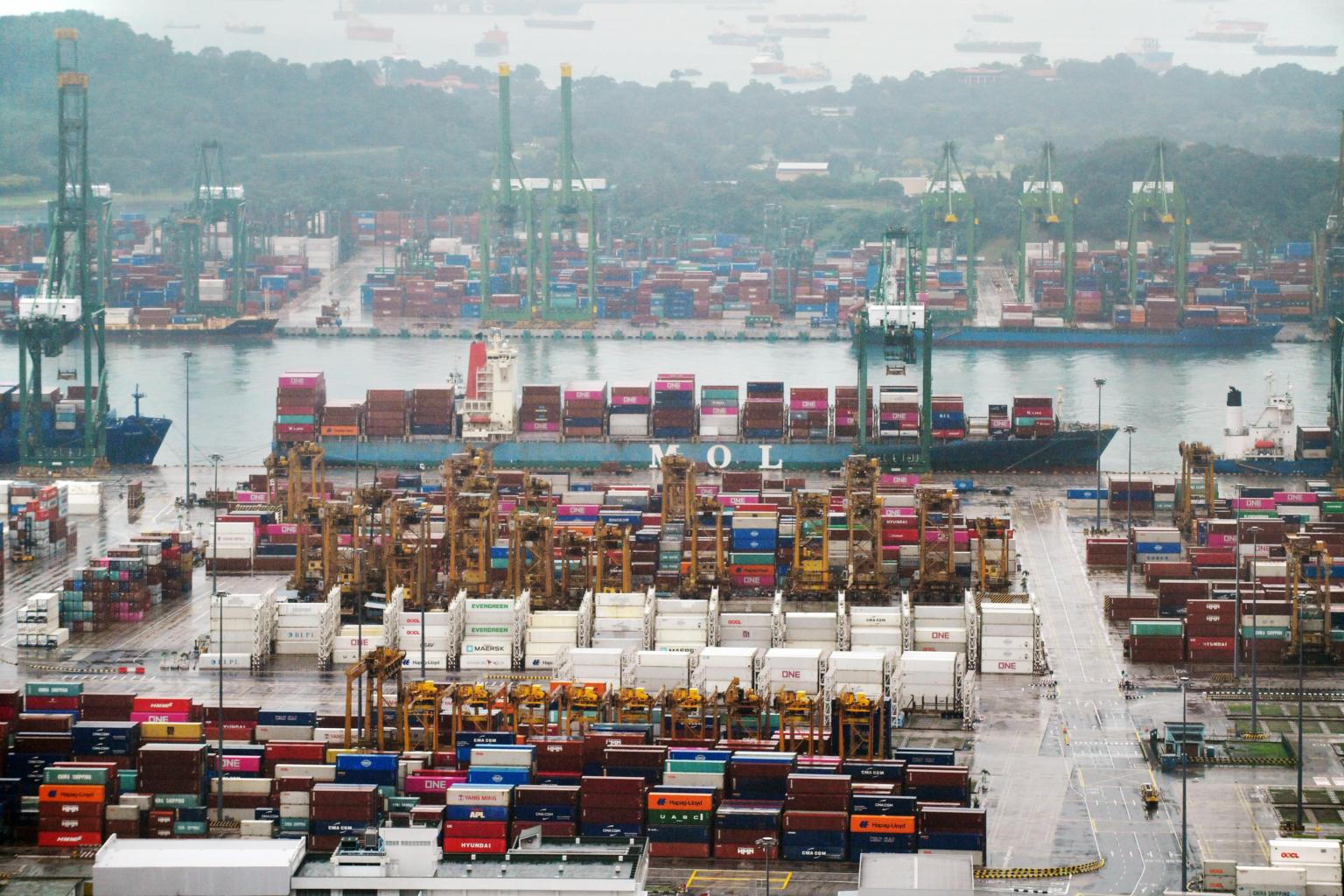Marine and offshore engineering sector eyes more resilient wind power projects
Sign up now: Get ST's newsletters delivered to your inbox

The Association of Singapore Marine Industries aims to increase the proportion of non-oil and gas projects to about 30 per cent in the coming decades.
ST PHOTO: ALPHONSUS CHERN
SINGAPORE - Companies in the marine and offshore engineering sector will now receive more guidance in their transition to more sustainable wind energy projects, as the industry stands at a crossroads with business volume gradually returning to pre-pandemic levels.
The Association of Singapore Marine Industries (Asmi) said it has created a road map to help companies better understand the opportunities in the relatively new area.
A class on how to secure and operate offshore wind projects has been developed with 26 engineers, business development managers and operations managers in the pilot batch of students.
A 41-page booklet has also been created to showcase Singapore's track record and capabilities in this field to bolster the country's reputation globally and to inspire companies to enter the space with more confidence.
These were announced on Friday (April 22) at the first Marine and Offshore Symposium at Resorts World Sentosa, organised by Asmi to discuss how to green the industry. It coincided with Earth Day, an annual commemoration that began in 1970 to raise awareness of the need to protect the planet from pollution and deforestation.
The industry has "silently but quickly" built up its track record in offshore wind projects in both Europe and East Asia in the past few years, Asmi said.
It found that these projects had been minimally impacted amid the downturn, prompting it to see them as a potentially more resilient path forward for the industry.
"In addition to playing a strong supporting role in positioning Singapore as the maritime decarbonisation hub, the industry looks at this effort as an opportunity to refresh and rejuvenate its public image to (attract) more local talents into the growing industry," it added.
The sector is involved in ship repair, shipbuilding, rig-building and offshore engineering activities. At its peak, it employed upwards of 23,000 workers pre-pandemic in 2016, but numbers have since fallen and now stand at about half of this level.
While conventional oil and gas projects are still expected to comprise the majority of marine and offshore engineering projects, Asmi aims to increase the proportion of non-oil and gas projects to about 30 per cent in the coming decades.
Speaking at the symposium, Minister of State for Trade and Industry Alvin Tan said Covid-19 and the global energy transition have forced the sector to relook its project pipeline and better consider its future.
This February saw the industry grow by 0.9 per cent year on year, a sign of resilience amid choppy waters, he said.
"Many of our enterprises faced project delays and cancellation due to border restrictions and curbs on economic activities," said Mr Tan. "Given that this is a sector which is intrinsically global in nature, companies have always been aware of the need to embrace international trends and opportunities."
On Friday, more than 200 top executives from over 100 companies met at Resorts World Sentosa for the symposium.


